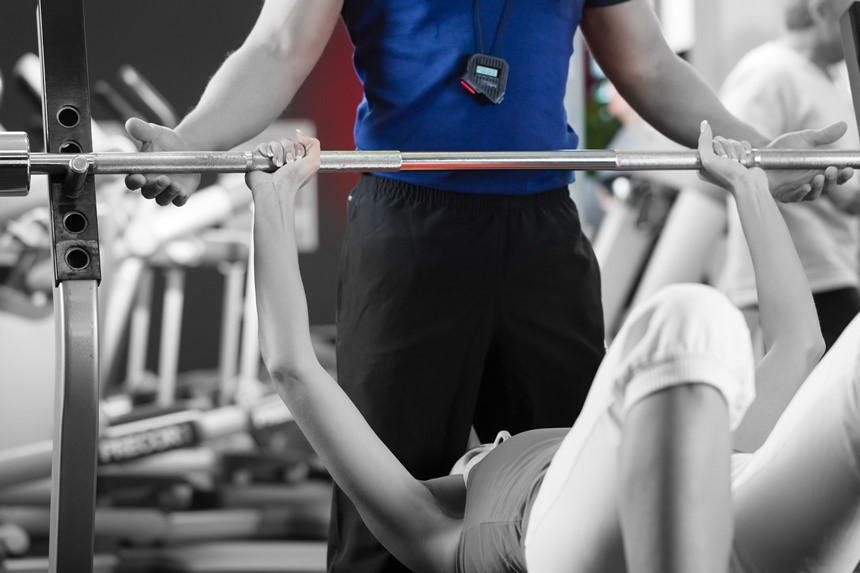We are pleased to bring you this regular column by Dr. David Creel, a licensed psychologist, certified clinical exercise physiologist and registered dietitian. He is also credentialed as a certified diabetes educator and the author of A Size That Fits: Lose Weight and Keep it off, One Thought at a Time (NorLightsPress, 2017).
Do you have a weight loss question for Dr. Creel? Email him at [email protected]. He may answer your question in a future column.
In the next few articles, patients and colleagues provide their own recipes for weight loss success. The stories and advice are down-to-earth and powerful. I learned a great deal from them, and I believe you will too.
Bill: The Practical Personal Trainer
If I wanted to hire a personal trainer, I would choose Bill Dean. He has never been a bodybuilder, followed a diet centered around protein shakes, canned tuna, or egg whites, nor does he have much interest in six-pack abs. He’s a fit guy in his mid-40s who believes in an honest day’s work, a good laugh, and making a difference in people’s lives. His clients range from professional athletes to stay-at-home moms. He’s worked with multi-millionaire executives and average wage earners who are making financial sacrifices to get help with improving their health and well-being. Some of Bill’s clients come to him tremendously overweight and out of shape, while others are relatively fit and want to stay that way.
Despite missing opportunities to make a quick buck, Bill hasn’t conformed to an industry driven by promises to get ripped, turn eyes in a bikini, or serve only those who want to have a “status” trainer.
So what drives Bill? People. He has a knack for tapping into the core reasons people want to get fit or improve their health. When he asks clients about their why he tells them to think three levels deep. People want to get healthy, but not just to be healthy; they want to do things, create something, or feel a certain way.
Bill told me people miss out when they compare themselves to others or focus on numbers. He doesn’t get fired up about body fat percentages, progress on the scale, or how you compare to others on a fitness test. Numbers are just numbers and they don’t mean anything. Feeling better means something and so does having more self-confidence or less back pain. It means something when you can sleep better at night or feel less overwhelmed by your busy lifestyle.
Bill illustrated this point with a story about one of his clients who, on days when she isn’t training with him, does an indoor cycling class at a local gym. The cycles are connected to an electronic board in the front of the room that displays how much work each cyclist is performing compared to other people in class. This client is a hard worker and leaves the class exhausted; nevertheless, she’s usually last on the leaderboard. Focusing on the fact that she’s a last place finisher discourages her. She leaves the gym feeling like a boxer knocked out in the final round of a hard-fought contest.
“It makes no sense for her to feel this way,” Bill told me. She’s up early on a Saturday morning working hard while most people are still in bed. Most of those who are up at that hour don’t have plans to exercise, or if they do, they won’t push themselves like she does. He helps her remain focused on her why, which has little to do with seeing her name at the top of a list in a cycling class. Most likely, if she can keep this focus, her fitness will continue to improve and she won’t stay at the bottom of the list. But in the grand scheme of things, does it really matter? We can always find stronger, faster, thinner, smarter, and richer people than us. On the other hand, there will always be people with fewer of these qualities. We get to choose our comparisons, or decide not to compare at all.
Lastly, Bill commented on how challenging yourself with fitness goals builds resiliency, self-confidence, and mental toughness. Exercising on the days you don’t feel like it builds confidence as you realize things that may seem too difficult are actually rewarding. “I’ve never had a client finish a workout and say, ‘I wish I hadn’t done it,’” he said. Instead, people are proud of themselves and begin to feel comfortable with excellence.
Bill sees parallels between success in many areas of life and staying fit. Want to have a successful business? Getting and staying fit will teach you persistence. Want to be a better parent? Commit to regular physical activity — it will make you a more patient caregiver. Want to become more confident and self-assured? Challenge yourself in the gym, on the bike, or walking through your neighborhood. In short, Bill’s recipe for success with physical activity is as follows:
- Know your why (at least three levels deep) and don’t get sucked into numbers or comparisons.
- After each workout, remind yourself what you just did, even though you didn’t have to do it.
- Dedicate yourself to consistent regular physical activity just as you’d take a medication that keeps you alive.
- When your confidence wanes, let exercise be a reminder that you’re capable, functional, and willing to persevere despite life’s challenges.
- Don’t take yourself or exercise too seriously. Whenever possible, tap into your childlike instincts and make physical activity a playful and enjoyable experience.
Don’t be afraid to hire a trainer, but own your fitness. You are the decider, the driver, and the one who explains why your health is worth the effort.
Become a Saturday Evening Post member and enjoy unlimited access. Subscribe now



